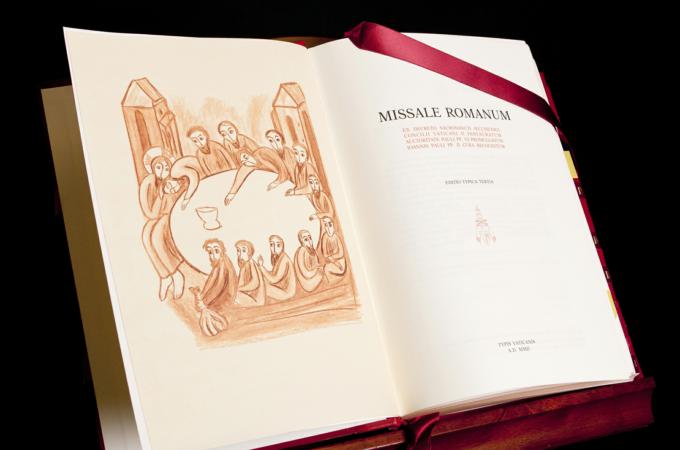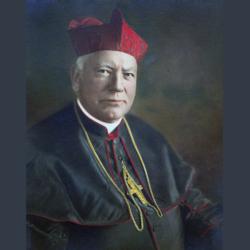Pope issues changes on liturgy translations
Pope Francis has issued a document on the translation of liturgical texts. The document, "Magnum principium," was issued on Sept. 9 and is to take effect from Oct. 1, 2017.
In this two-page document Pope Francis decentralizes the process of preparing and approving translations of liturgical books and restores this responsibility to each country's assembly of bishops, the episcopal conference. In his 2013 document "The Joy of the Gospel" Pope Francis wrote that "Excessive centralization, rather than proving helpful, complicates the Church's life and her missionary outreach" ("Evangelii gaudium," 32). "Magnum principium" addresses this state of affairs as it affects liturgical translation.
Pope Francis acknowledges "difficulties have arisen" in the important task of producing texts for worship that both express the one Catholic faith and also facilitate the active participation of believers in these sacred rites. In particular, tensions emerged between the competence and role of local churches and the central Vatican authority.
The document underlines that the Vatican's Congregation for Divine Worship and the Discipline of the Sacraments is "absolutely necessary." Among its roles is to confirm translations, to assure their conformity with Catholic faith and to recognize adaptations or significant changes to the original text that the Episcopal Conferences might propose.
Some history and context might help. Liturgical texts are published in Latin (these are the "official" texts) by the Holy See and, since the Second Vatican Council, are subsequently translated into many of the vernacular languages spoken around the world. The council entrusted this responsibility to the episcopal conferences, who would, in turn, seek recognition of the translated texts from the Congregation for Divine Worship and the Discipline of the Sacraments.
This is what happened when the first translations of the Mass appeared after Vatican II. The Latin edition, the "editio tipica," was promulgated in 1970. The English translation was undertaken by a committee, the International Committee for English in the Liturgy (ICEL), established by 11 English-speaking episcopal conferences. The approach taken by ICEL has been described as "dynamic equivalence," an attempt to render the original Latin in a style that reflected contemporary idiom and linguistic culture. In the subsequent translation of other liturgical texts, debate arose as to whether there should be a more literal word-for-word rendering of the Latin text. ICEL translations that had received the necessary two-thirds approval vote at episcopal conferences increasingly failed to receive official recognition from the Vatican.
In 2001, the congregation issued a document "Liturgiam autenticam" that called for translations that were to reflect the Latin text "in the most exact manner." In the same year the congregation also established Vox Clara, a group to advise on the translation of liturgical texts in the English language. The specific competences of the Vatican, the episcopal conferences, ICEL and Vox Clara were often unclear and sometimes contentious.
Pope Francis's new document clarifies where the responsibility for the translation of liturgical texts lies and calls for "a vigilant and creative collaboration full of reciprocal trust" between the episcopal conferences and the Congregation for Divine Worship and the Discipline of the Sacraments. In keeping with the intention of Vatican II, Pope Francis states that the episcopal conference is "to prepare and publish, after prior review of the Holy See, translations of the liturgical texts."
In the official commentary on "Magnum principium," Archbishop Arthur Roche, secretary to the Congregation, notes that, in defining the roles and competencies of the Apostolic See and the Conferences of Bishops, Pope Francis has called for "a spirit of dialogue" in the translation of liturgical texts and in the any eventual adaptations that could touch on rites or texts. Archbishop Roche states that the confirmation of the Congregation is not to be considered as "an alternative intervention in the process of translation," but rather as an authoritative act by which the Congregation "ratifies the approval of the bishops."
The commentary also refers to the congregation's 1994 document "Varietates legitimate," which sets out the norms for legitimate variations within the liturgical texts that would respond to local cultural customs and traditions. The issue of "inculturation" has proven difficult. Pope Francis's document offers the opportunity for episcopal conferences to faithfully propose cultural adaptations for recognition by the congregation. Indeed, recent translations into the English language see no difference in how that language is spoken from Auckland to Anchorage or from Nairobi to Newark.
"Magnum principium" offers another instance whereby Pope Francis calls the Church to live the vision proposed by Vatican II. The "great principle" from which the document takes its name is to enable all to participate intelligently, actively, and easily in the liturgy of the Church as advocated by the council. Pope Francis notes that a faithful translation "cannot always be judged by individual words." In proposing that "it is necessary to communicate to a given people using its own language all that the Church intended to communicate to other people through the Latin language," "Magnum principium" moves away from a slavish literality to embrace the nuance of modern languages.
Pope Francis, it has been noted, has firmly placed the ball in the bishops' court. This restored competence inevitably brings more responsibility. The English-speaking conferences are fortunate to have the advice of scholars who serve on ICEL and whose mission is thereby reinforced. Meanwhile, the document would appear to question the purpose of Vox Clara, whose future may be more precarious. The recent, controversial translation of the Mass texts into English was carried out under the watch of Vox Clara. It will be interesting to see how future translations develop in the light of "Magnum principium."
Vatican II's document on the liturgy called for "the full active participation of all God's holy people in these liturgical celebrations, especially in the Eucharist" ("Sacrosanctum concilium," 41). In an address last month Pope Francis remarked that while the liturgical reform is "irreversible," "there is still work to do in this direction." "Magnum principium" represents a significant step forward.
- MSGR. LIAM BERGIN IS PROFESSOR OF SACRAMENTAL THEOLOGY AT BOSTON COLLEGE AND A FORMER RECTOR OF THE PONTIFICAL IRISH COLLEGE AT ROME, HE IS PRIEST-IN-RESIDENCE AT GATE OF HEAVEN AND ST. BRIGID PARISHES IN SOUTH BOSTON.



















